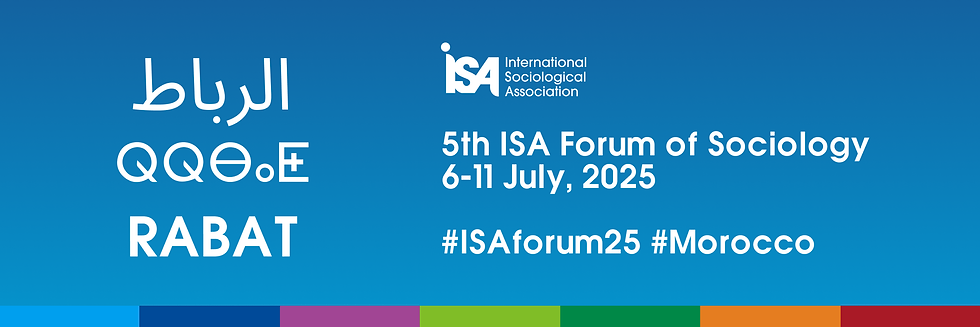

-
Sports, Bodies, and Emotions (20182)
Miriam Adelman -
Alienation and Futures Research (20184)
Dirk Michel-Schertges, Mariolina Graziosi -
Estudios De La Alienación: Teoría y Método (20185)
Humberto Fernandes -
Alienation and Knowledge: The Anthropocene and Human Development 1 (21114)
Dirk Michel-Schertges -
Alienation and Knowledge: The Anthropocene and Human Development 2 (22093)
David Embrick, Ekaterina Lytkina -
Digital Alienation: From Everyday Internet to Artificial Intelligence 1 (21452)
Vessela Misheva, Sunjin Oh -
Digital Alienation: From Everyday Internet to Artificial Intelligence 2 (21115)
Dirk Michel-Schertges -
Alienation, Racial Capitalism, and Palestine (21308)
David Embrick -
The Affective and Emotional Dimensions of Alienation: Modernity, Agents, Structures, and Processes 1 (21395)
Emma Engdahl, Olga Simonova -
The Affective and Emotional Dimensions of Alienation: Modernity, Agents, Structures, and Processes 2 (20117)
Olga Simonova -
The Affective and Emotional Dimensions of Alienation: Modernity, Agents, Structures, and Processes 3 (21408)
Andrew Blasko -
The Affective and Emotional Dimensions of Alienation: Modernity, Agents, Structures, and Processes 4 (20569)
Ramón Menéndez Domingo, Laura Mosteyrin -
PANEL "RC36 Invites: Current and Future Perspectives on the Anthropocene" (20181)
Humberto Fernandes -
PANEL "Higher Education Systems between Quality Assurance, Rankings, and Alienation to the Labour Market. What out-of-Ranking Higher Education Systems Can Teach Us? 1" (20950)
Silvia Pezzoli, Stefano Becucci -
PANEL "Higher Education Systems between Quality Assurance, Rankings, and Alienation to the Labour Market. What out-of-Ranking Higher Education Systems Can Teach Us? 2" (20559)
Miriam Adelman -
RC36 Business Meeting (21994)

